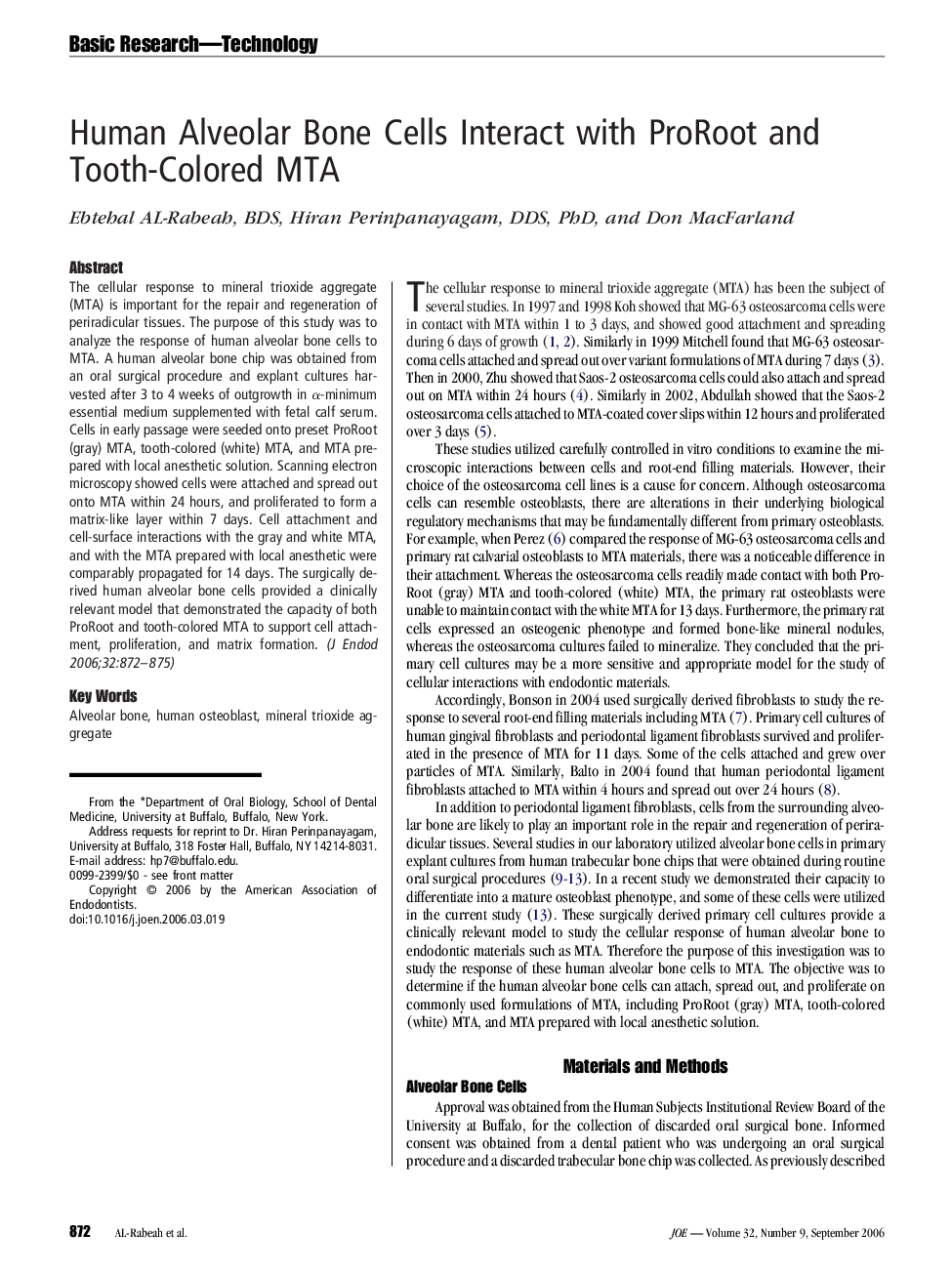| Article ID | Journal | Published Year | Pages | File Type |
|---|---|---|---|---|
| 3150199 | Journal of Endodontics | 2006 | 4 Pages |
The cellular response to mineral trioxide aggregate (MTA) is important for the repair and regeneration of periradicular tissues. The purpose of this study was to analyze the response of human alveolar bone cells to MTA. A human alveolar bone chip was obtained from an oral surgical procedure and explant cultures harvested after 3 to 4 weeks of outgrowth in α-minimum essential medium supplemented with fetal calf serum. Cells in early passage were seeded onto preset ProRoot (gray) MTA, tooth-colored (white) MTA, and MTA prepared with local anesthetic solution. Scanning electron microscopy showed cells were attached and spread out onto MTA within 24 hours, and proliferated to form a matrix-like layer within 7 days. Cell attachment and cell-surface interactions with the gray and white MTA, and with the MTA prepared with local anesthetic were comparably propagated for 14 days. The surgically derived human alveolar bone cells provided a clinically relevant model that demonstrated the capacity of both ProRoot and tooth-colored MTA to support cell attachment, proliferation, and matrix formation.
